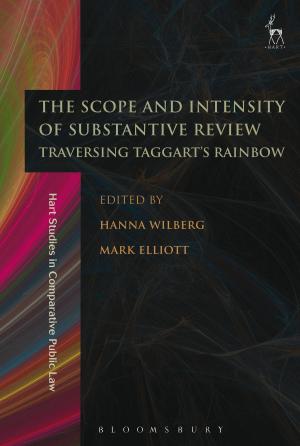Wars of Terror
Nonfiction, Social & Cultural Studies, Social Science, Anthropology, Political Science| Author: | Gabriele Marranci | ISBN: | 9780857851062 |
| Publisher: | Bloomsbury Publishing | Publication: | November 19, 2015 |
| Imprint: | Bloomsbury Academic | Language: | English |
| Author: | Gabriele Marranci |
| ISBN: | 9780857851062 |
| Publisher: | Bloomsbury Publishing |
| Publication: | November 19, 2015 |
| Imprint: | Bloomsbury Academic |
| Language: | English |
Analyzing the role of rhetoric and ideology in the western 'war on terror' and Islamic 'jihad' in the aftermath of 9/11, Gabriele Marranci shows that we are not experiencing a 'clash of civilizations' but a clash among 'civilizers' who believe they have the power to define how to be human. Seeing themselves as 'under attack' from a globalizing world that threatens to dilute their identity and very existence, both sides employ a civilizational rhetoric to support its recourse to political violence.
Examining why some individuals are radicalized to take violent action while the majority are not, the author compares the case of self-identified crusader Anders Breivik with an example from his own fieldwork. He shows that emotions such as indignation, sense of injustice and reaction to the killing of civilians play an important role in underpinning violent acts – as do the views presented by the 'civilizers' on the other side. Over time, this leads to ever-greater escalation as one side calls for more jihad and the other for greater anti-terrorism measures, drone attacks and bombings.
Based on twelve years of research and fieldwork in western countries as well as South and Southeast Asia, Wars of Terror shows the impact labels, stigma, conspiracy theories and stereotypes have in maintaining this ongoing global conflict. A fascinating anthropological study which makes a vital contribution to our understanding of one of the most important issues of our time.
Analyzing the role of rhetoric and ideology in the western 'war on terror' and Islamic 'jihad' in the aftermath of 9/11, Gabriele Marranci shows that we are not experiencing a 'clash of civilizations' but a clash among 'civilizers' who believe they have the power to define how to be human. Seeing themselves as 'under attack' from a globalizing world that threatens to dilute their identity and very existence, both sides employ a civilizational rhetoric to support its recourse to political violence.
Examining why some individuals are radicalized to take violent action while the majority are not, the author compares the case of self-identified crusader Anders Breivik with an example from his own fieldwork. He shows that emotions such as indignation, sense of injustice and reaction to the killing of civilians play an important role in underpinning violent acts – as do the views presented by the 'civilizers' on the other side. Over time, this leads to ever-greater escalation as one side calls for more jihad and the other for greater anti-terrorism measures, drone attacks and bombings.
Based on twelve years of research and fieldwork in western countries as well as South and Southeast Asia, Wars of Terror shows the impact labels, stigma, conspiracy theories and stereotypes have in maintaining this ongoing global conflict. A fascinating anthropological study which makes a vital contribution to our understanding of one of the most important issues of our time.















